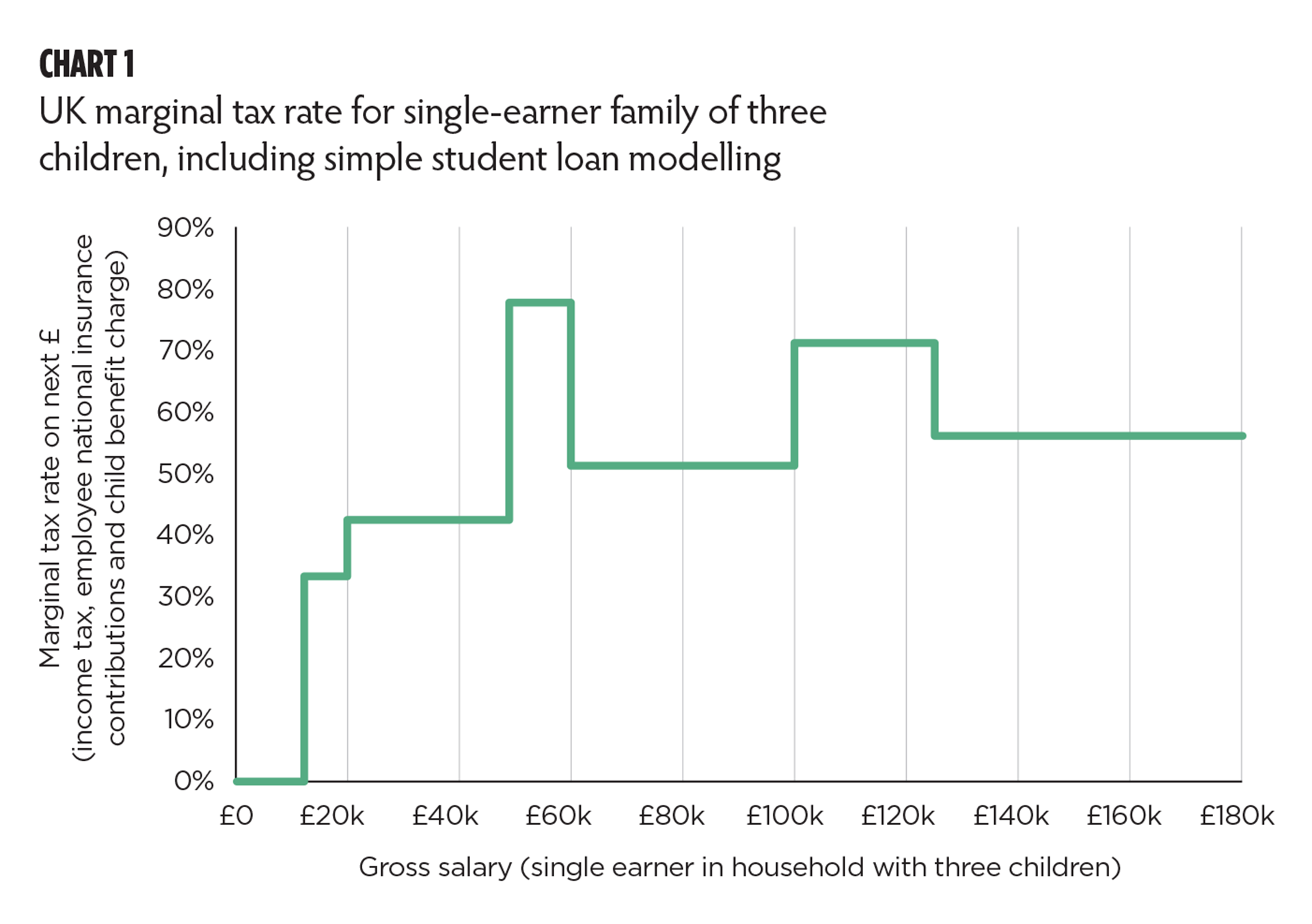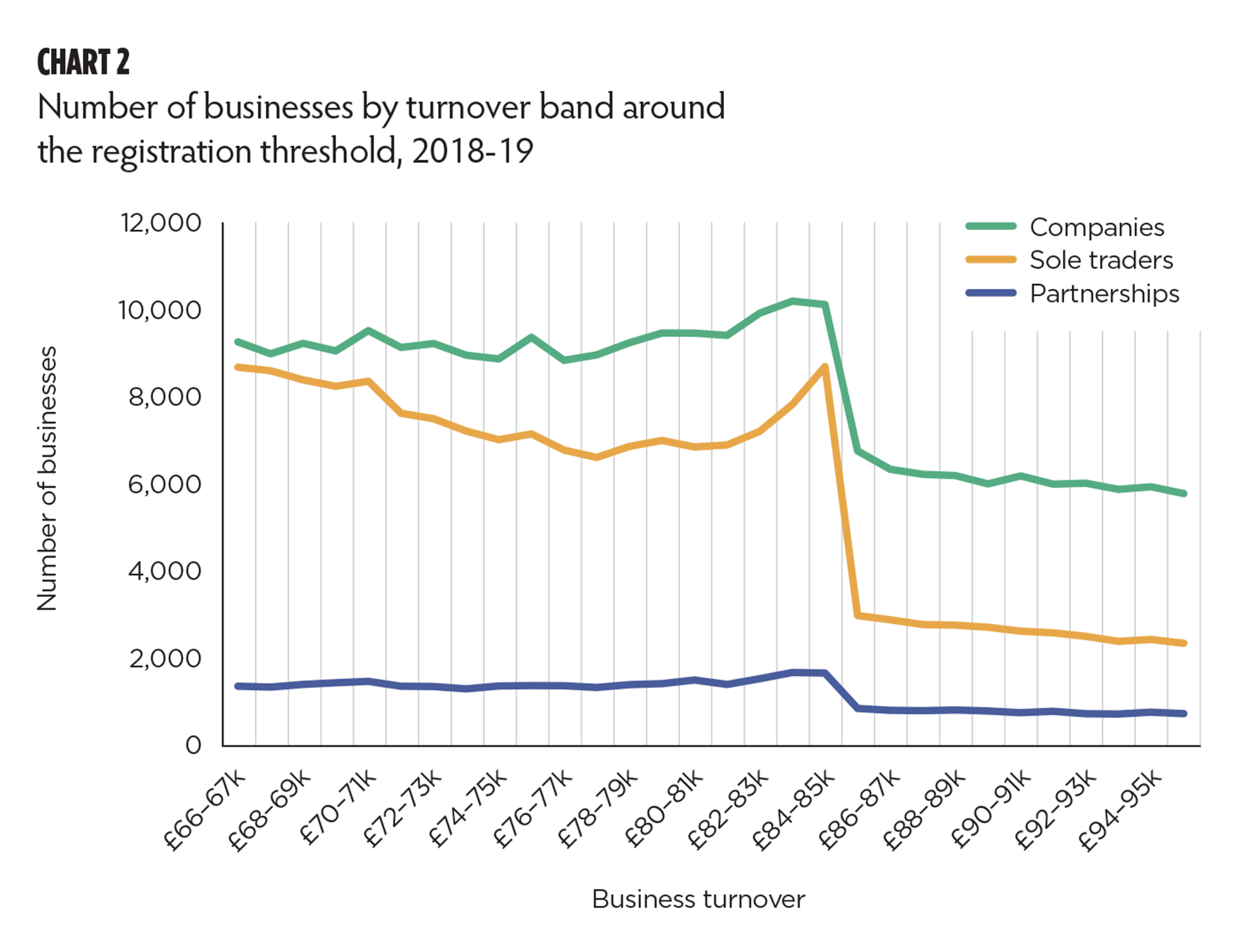My tax manifesto: reform the tax system to unleash growth
7 min read
Our tax system is overly complex and discourages people from increasing their earnings. Dan Neidle has a plan for reforms to boost fairness and growth
Tax will always be political. The size of the state, the level of overall tax necessary to support it, and the degree of progressivity of the tax system – these are fundamental questions on which we can expect politicians to disagree.
But there are other tax issues which should not be politically contentious; serious problems in the tax system that should appal people of all political complexions. We have ‘cliff edges’ which hold back growth, and unnecessary complexity which deters investment. The tax system is also undermined by a widespread belief that some people get away without paying tax.
Each of these is a difficult problem, but I believe each is fixable.
Cliff edges
Income tax and VAT are plagued by cliff edges. Taxpayers at relatively modest levels of income can face a high marginal rate of tax (see Chart 1). When your earnings hit £50k, child benefit starts to be withdrawn. If you have three children, that creates a marginal tax rate of 68 per cent. If you are also making student loan repayments, the marginal rate is 77 per cent. For many people it is simply not worthwhile to increase their earnings above £50k – they would in effect be paid well below the minimum wage. (These figures are for most of the United Kingdom; they are all somewhat higher in Scotland.)
There are worse issues for higher earners. The generous childcare benefits introduced by recent governments all disappear completely when a taxpayer’s earnings hit £100k. So, for example, if you’re earning £99,999.99 and receiving £20k in childcare subsidies; then earning one penny of additional income will cost you £20k. That’s a marginal rate of 20,000 per cent. Earning more has made you poorer, and you’ll continue to be poorer until your earnings hit £145k.
There are widespread reports of people responding to the perverse incentives these rules create. The self-employed refusing to take additional hours so they stay under £50k. Doctors reducing their hours to stay under £100k. IT consultants turning away work. At a time when the economy is close to capacity, this is madness.
 Credit: Tax Policy Associates Ltd
Credit: Tax Policy Associates Ltd
 Credit: Tax Policy Associates Ltd
Credit: Tax Policy Associates Ltd
A brave government could simply abolish the cliff edges, believing that it will yield more tax than it costs. A more cautious government could prudently assume a significant cost (probably around £8bn) and recover it by slightly increasing tax on higher earners. But surely nobody believes it is right or rational for modest earnings to face marginal tax rates of over 60 per cent?
The second cliff edge is VAT (see Chart 2). The cause is the VAT registration threshold of £85,000 – the highest in the world. Once a small business’ turnover hits that level, they will have to charge VAT at 20 per cent on every sale they make. That will immediately render them uncompetitive compared with those on a lower turnover.
There is convincing evidence that companies deliberately hold back their growth in order to stay below the threshold. If we plot a chart of business turnover (on the x-axis) against number of businesses (on the y-axis), we see a massive cliff edge right on the £85,000 VAT registration threshold.
Academics at Warwick University have demonstrated this is not a case of tax evasion – people hiding transactions – but instead it’s conscious management of income. Electricians not taking on an apprentice. Plumbers stopping working in March. Coffee shops restricting their opening hours. These are rational decisions for the companies to make, but mean there are thousands of small companies – I estimate 26,000 – caught in the £85,000 revenue trap.
Increasing the threshold is not the solution; it would cost a fortune and only move the problem. The only answer is to reduce the VAT threshold significantly. There are obvious political challenges, but it’s perhaps achievable if all the revenues raised by reducing the threshold are used to reduce the VAT rate for everybody. We could target a threshold of £30,000 and a VAT rate of somewhere around 17 per cent, achieved by staged reductions over the course of a parliament. Government could work with the private sector to ensure that micro-businesses had easy app-based solutions for VAT compliance.
 Credit: Adobe Stock
Credit: Adobe Stock
Complexity
I recently analysed one simple business scenario – an American company funding its UK subsidiary – and showed that it would be necessary to go through nine complicated interlocking rules to determine if the UK subsidiary’s interest was tax deductible. The impact on investment is obvious.
Some of the complexity is hard to remove, but some is straightforward. The tax system is full of fossils – often rules introduced in the 80s and 90s to stop particular tax avoidance strategies, but which more recent rules render unnecessary. All should be repealed. There should be no loss of tax revenue, especially if the repeal was combined with a credible threat of retrospective legislation to attack any attempt to take advantage of the repeals for tax avoidance purposes.
The perception of unfairness
The tax system is undermined by the belief that some people get away without paying tax, while ordinary people are treated harshly. Three problems are particularly acute.
First, HM Revenue and Customs penalties are disproportionately applied to people on low incomes. From 2018 to 2022, HMRC served 420,000 penalties on people earning too little to pay tax. They shouldn’t have needed to file a tax return, but for some reason they were required to – and because they didn’t file on time, they received a penalty of at least £100. In most cases, that’s more than half their weekly income. We should cancel penalties for people who file a return showing they don’t earn enough to pay tax.
Some of the complexity is hard to remove, but some is straightforward. The tax system is full of fossils
The second – at the other end of the scale – is the ease with which people caught evading tax can escape prosecution. HMRC prioritises the efficient collection of tax receipts and so will generally prefer to reach a civil settlement rather than proceed with a prosecution. The recent prosecution of ex-Formula One boss Bernie Ecclestone only occurred because, having admitted evading tax, he failed to provide full disclosure to HMRC. Had he provided that disclosure, he would never have been prosecuted. Faith in the tax system would be improved by more visible prosecutions of tax evaders.
Finally, tax avoidance. Most tax practitioners say the attitude of the courts and the legion of anti-avoidance rules mean tax avoidance schemes will almost inevitably fail. However, there are people still selling them and collecting large fees for doing so. And when the schemes fail, the advisers disappear and the clients are left with large tax bills.
New measures are required to protect consumers, as well as the tax system. I’m working with a retired senior HMRC official on a proposal that would hit promoters of hopeless tax schemes with automatic fines, equal to a multiple of the fees they’ve received. The proposal is carefully calibrated so that normal tax advisers needn’t fear being accidentally caught, but those flogging hopeless tax schemes know the jig is up. We’ll be publishing details soon.
That’s my programme for non-partisan tax reform. Eliminate the cliff edges that hold back growth. Cull the complexity that deters investment. Treat tax evasion and avoidance harshly, but don’t impose disproportionate penalties on vulnerable people making innocent mistakes. It’s a programme that could strengthen, simplify and secure the UK tax system.
Dan Neidle is founder of Tax Policy Associates
